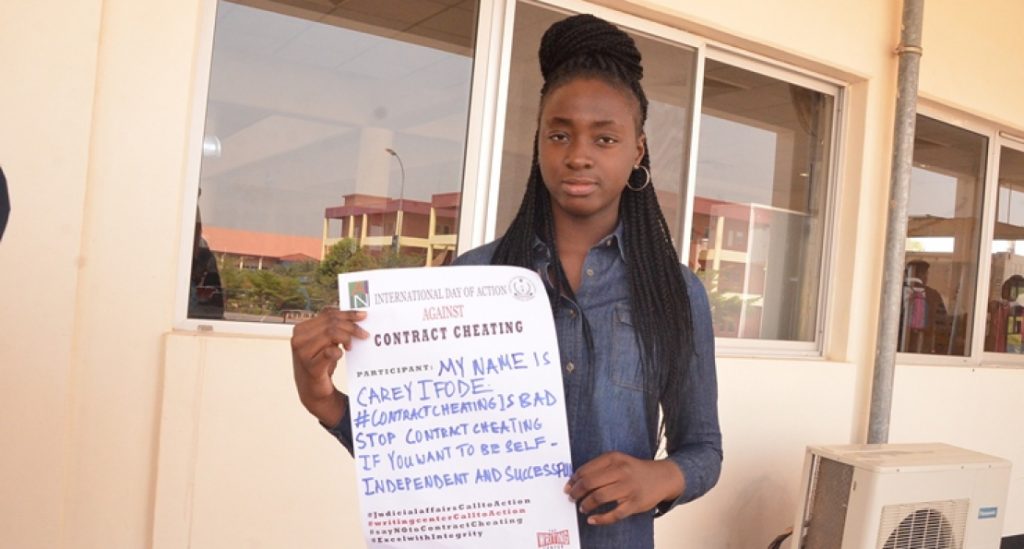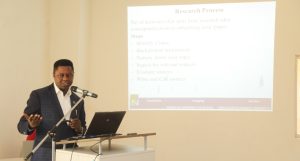In commemoration of the International Day of Action (IDOA) against Contract Cheating 2022, the Judicial Affairs Unit organized an informative session aimed at creating awareness of the scope and consequences of contract cheating on campus. AUN has participated in activities marking IDOA against contract cheating for five consecutive years because the contract and academic integrity are strictly upheld here. Mr. Nsikak Ntuen, a 4th-year ICP major, and member of the CAB marketing chair hosted the event.
In attendance was an interesting mix of staff and students, including Prof. Emmillienne Akpan, Dr. Lionel Rawlins the Vice President of Safety and Security Systems Management, Dr. Mbursa Gwany the Head of the Judicial Affairs Office and the Vice Chairman of the Criminal Justice Network, Yola, the Director, Office of Student Activities and Involvement, Mr. Sesugh Annger, SGA Vice President, Saffiyyah Auwal, SGA Public Relations Officer, Ngumimi Koughna, and SGA Director of Special Events, Alamin Ahmed, and the guest speaker, Dr. Richard Kamai from the Federal College of Education, Yola.
The Director of the Writing Center. Ms. Emillienne Akpan, in her keynote speech, emphasized the need for enlightenment on contract cheating. Academic integrity, she pointed out, upholds equity, and sets a moral compass for students to follow, not to mention, the effect it has on the school’s reputation, and the quality of the degrees being conferred.
She discussed ways, through which students can resist the pressure to engage in contract cheating. These included academic support in the form of meeting with instructors, peer learning, honor society classes, proper academic planning, and just generally taking advantage of the academic resources provided here at AUN.
After the keynote speech, the rest of the session was dedicated to uncovering the academic, and legal implications of contract cheating. The academic implications were discussed by the guest speaker, Dr. Richard Kamai. His presentation featured; a brief history of contract cheating, and an analysis of some of the enabling factors driving contract cheating in the Nigerian educational system, backing up his thesis with statistics, and case study examples of websites, and individuals alike, who specialize in contract cheating.
Dr. Kamai further presented possible solutions to contracts to cheat.
The legal implications of contract cheating were expanded by Barr. Mbursa Gwany established a connection between contract cheating, criminal justice, and civil adjudication. Citing the AUN academic integrity code, which penalizes unauthorized possession, delivery, removal, or sale of any academic work, as well as federal and state laws that criminalize contract cheating.
There was a panel discussion, led by Dr. Lionel Rawlins, Ngumimi Koughna, Moses Christian, and Chimaobi Ekuma. Ngumumi started first, speaking on types of contract cheating. Her discussion shed light on the mechanisms behind some of these platforms, and how they can be detrimental to a person’s academic career. Moses Christian led a discussion on how to actively involve students, the main culprits, in combatting contract cheating. These methods bordered on creating awareness, shifting the focus from the consequences of contract cheating on students, and implementing a more holistic viewpoint, that is, focusing on its effects on society, thereby invoking civil responsibility. Finally, Dr. Rawlins concluded the discussion session by highlighting how to reduce opportunities for students to cheat.
Reported by Grace David – Work Study Student



